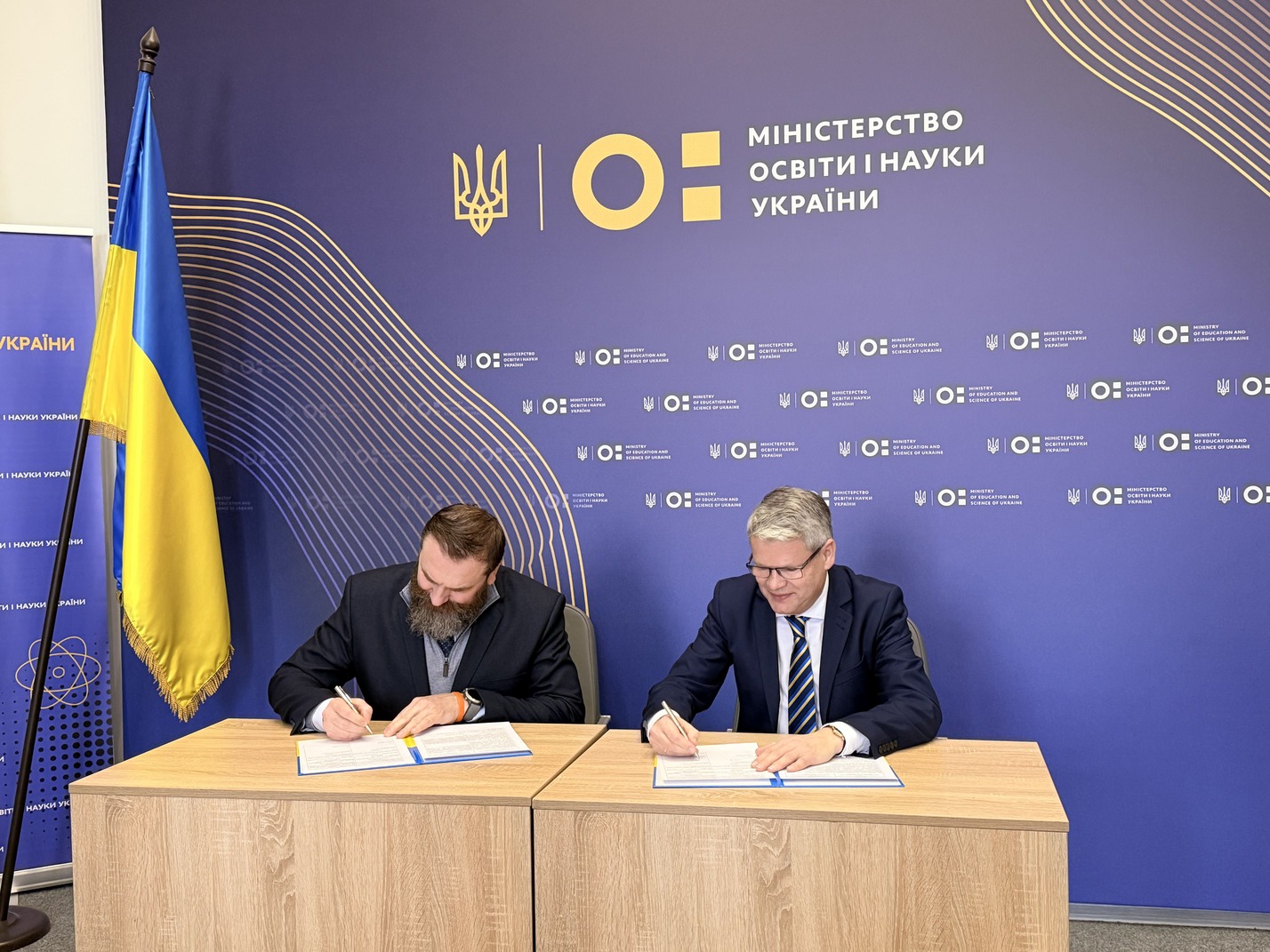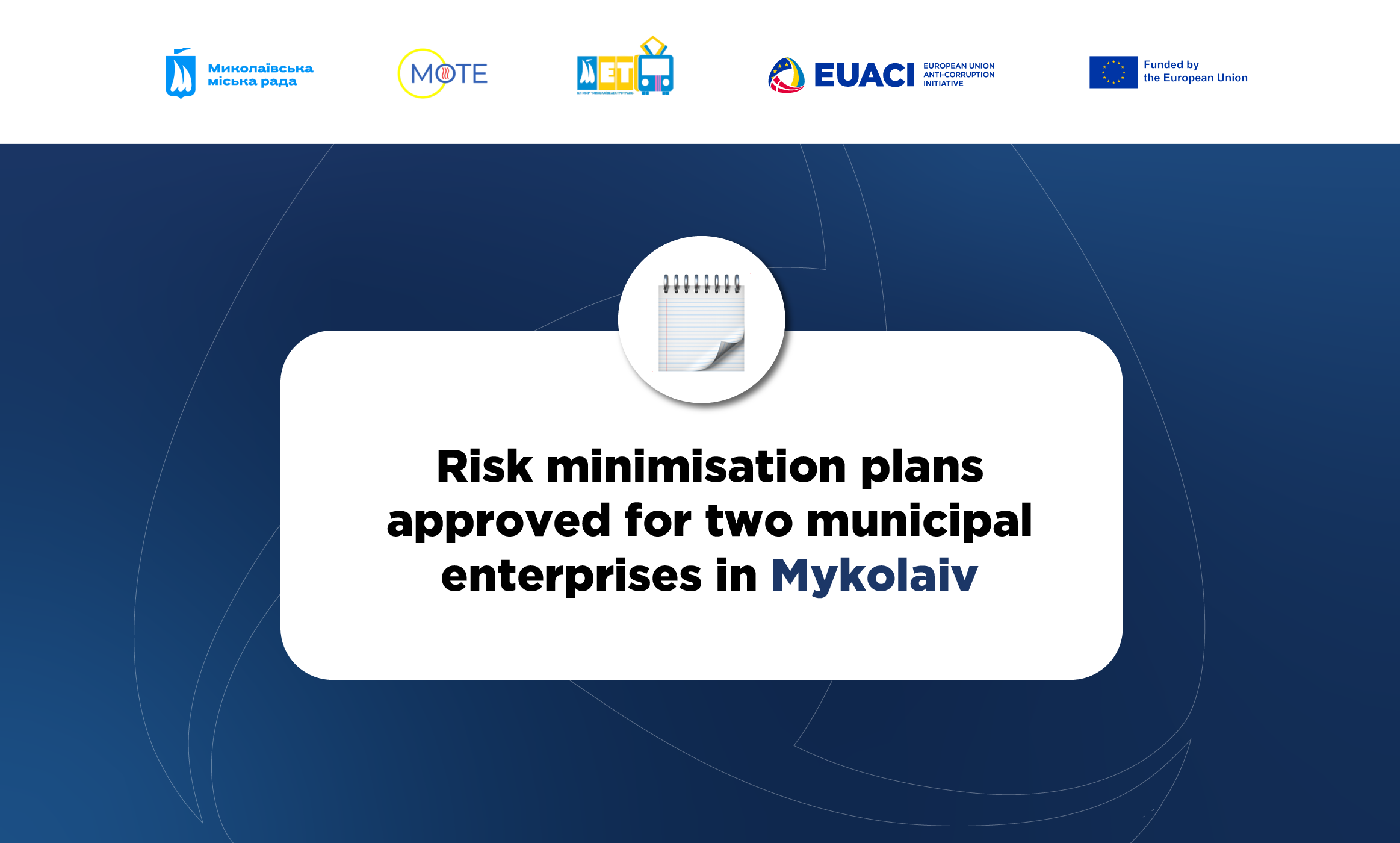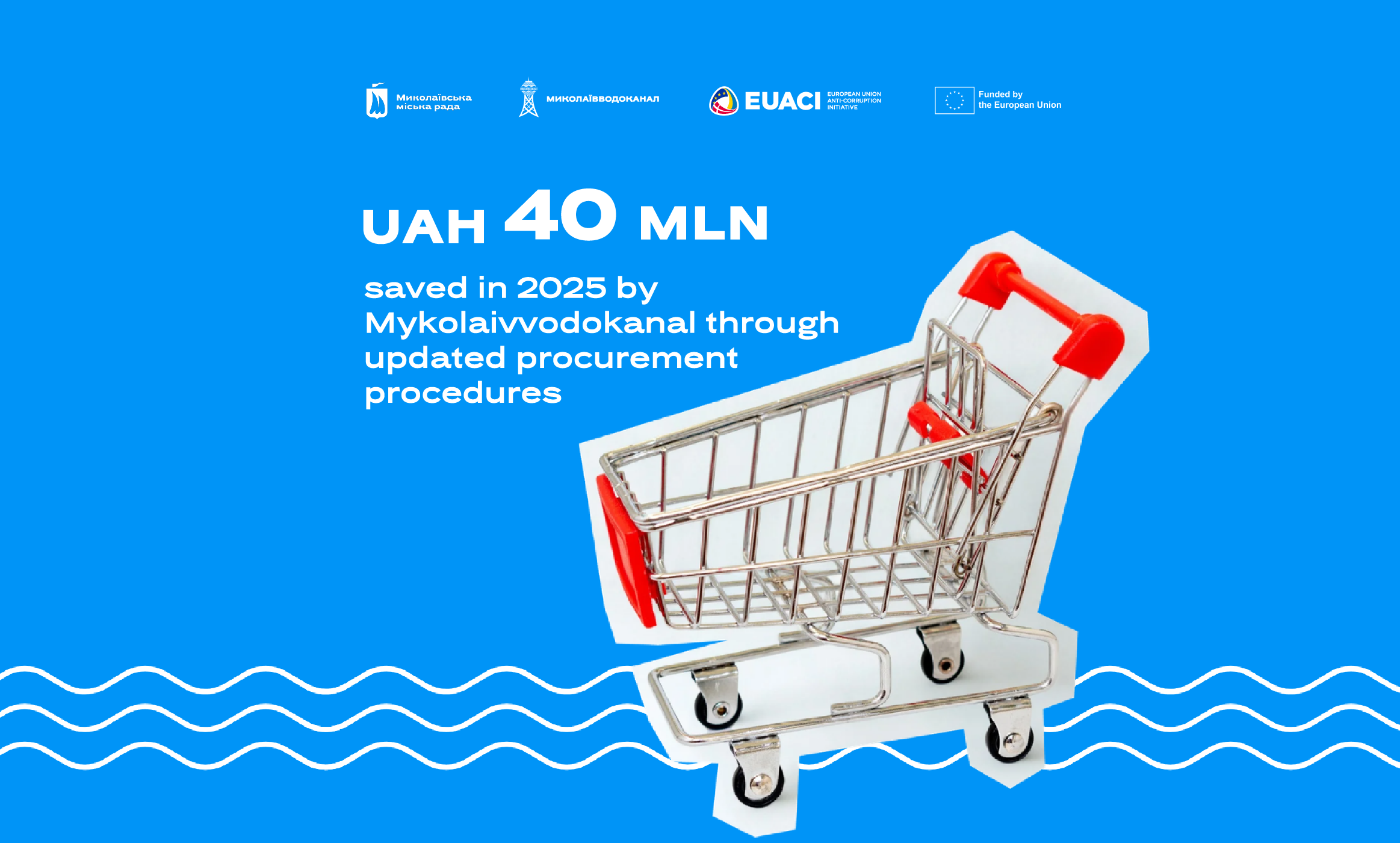The restoration and further post-war reconstruction of Ukraine requires special clear and effective steps based on the principles of transparency and accountability. The role of communities in this can hardly be overestimated, as they are the ones who eliminate the consequences of the destruction, assess the amount of damaged property, formulate budgets, and implement recovery projects.
The Methodology for Corruption Risks Assessment is a document that contains the most common risk indicators in 6 areas and best practices for reducing them. The document was developed by EUACI together with the Ministry for Communities, Territories and Infrastructure Development of Ukraine with the support of the United Nations Development Programme in Ukraine.
“The successful experience of conducting integrity assessments in the EUACI’s Integrity Cities has confirmed the value of developing this tool. Together with the Ministry for Reconstruction and UNDP, we continue to work on minimising corruption risks in local government activities and we are pleased to present the updated Methodology for Assessing Corruption Risks in Local Self-Government Activities. It is designed to strengthen the capacity of local governments, to develop and apply corruption prevention mechanisms, and to build public trust in local authorities,” emphasizes Allan Pagh Kristensen, Head of the EU Anti-Corruption Initiative.
What is presented in the manual?
▪️ Methodology for assessing corruption risks.
▪️ Indicators for assessing corruption risks in 6 areas of local self-government.
▪️ Guidelines for writing a report on the results of the corruption risk assessment.
▪️ Concept for developing the Integrity Plan (anti-corruption program) of the local self-government body.
▪️ Samples of administrative documents.
“The reconstruction of Ukraine in wartime and post-conflict periods has highlighted the importance of strong and effective local authorities. Ukrainian communities face extraordinary daily challenges, requiring relentless work to save lives and protect citizens and focused efforts to rebuild infrastructure and social services. Therefore, they must be steadfast in their commitment to transparency and accountability. At UNDP, we are proud to support Ukraine in developing mechanisms that will help minimise corruption risks and enhance local transparency, thereby ensuring its people’s long-term sustainability and well-being”, said Jaco Cilliers, UNDP Resident Representative to Ukraine.
The methodology will be useful for heads of local authorities, anti-corruption commissioners, transparency and accountability advisors, and members of the public. Its main purpose is to help communities minimise corruption risks in their activities and implement effective integrity practices.
“The Ministry for Restoration has consistently worked to build a system of integrity not only in its subordinate organisations but also in communities. This is key to ensuring transparent and accountable recovery. The work with local authorities aims to provide them with tools to prevent corruption risks and build a compliance system. The developed manual will be key for communities seeking to minimise corruption risks and attract investment,” said Serhiy Derkach, Deputy Minister for Communities, Territories and Infrastructure Development of Ukraine.
The text of the document is available in two languages (Ukrainian and English) via the link


